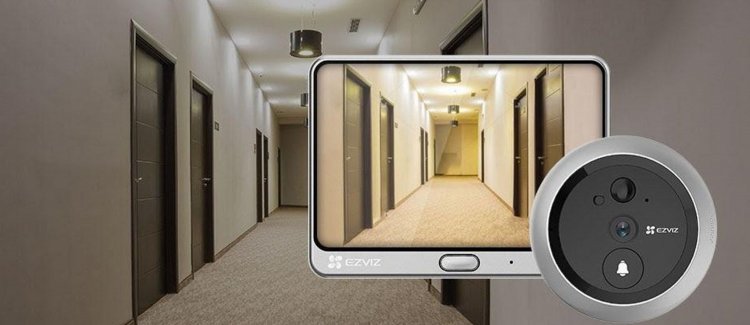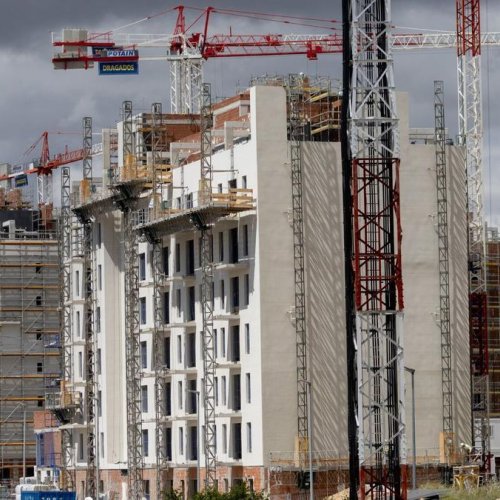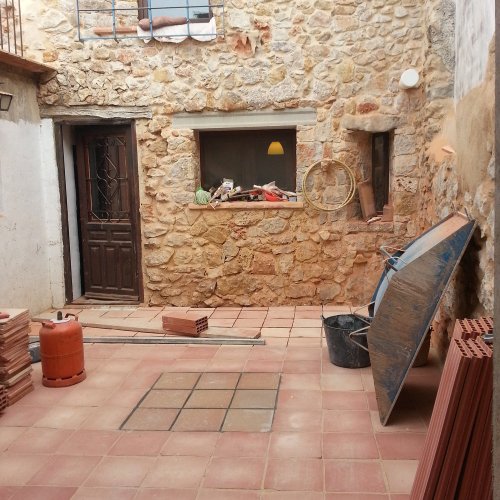
Is It Legal to Install a Peephole Camera on Your Front Door? What Spain's Supreme Court Ruled in 2025

Is It Legal to Install a Peephole Camera on Your Front Door? What Spain's Supreme Court Ruled in 2025
Smart door peepholes are becoming increasingly popular in modern homes—but not every installation is legal. If you live in a shared residential building, installing a camera at your front door could lead to serious legal issues. The Spanish Supreme Court has recently issued a landmark ruling, clarifying when these devices are allowed and when they infringe on your neighbors’ right to privacy.
As real estate marketing experts, we break down what the ruling means, what’s legal, and how to avoid potential legal pitfalls in your building or community of owners.
What Is a Peephole Camera—and Why Is It Controversial?
Traditional optical peepholes are being replaced by electronic smart devices that detect motion, offer night vision, connect via WiFi, and record footage to the cloud. While they offer enhanced security and convenience, they can also violate privacy laws—especially in apartment buildings or shared housing.
This led the Spanish Supreme Court to set a clear legal precedent in a recent judgment (July 17, 2025), outlining the legal boundaries for homeowners when installing surveillance technology near shared spaces.
Real Case: When Does a Peephole Camera Violate Privacy?
The legal conflict took place in a residential building in Aluche, Madrid, where a couple installed a smart peephole with motion detection, night vision, and cloud storage. The issue? The neighbors’ doors were only 1.5 meters apart, and the device was triggered every time the adjacent neighbor opened their door, even recording parts of their home’s interior.
The court ruled this to be a clear violation of privacy rights, protected under Article 18.1 of the Spanish Constitution and reinforced by Spain’s Data Protection Law (LOPDGDD).
When Is a Door Camera Illegal?
According to the Supreme Court, a door camera becomes illegal if it meets any of the following criteria:
- * It records common areas or neighboring homes.
- * It systematically monitors who enters or exits another apartment.
- * It lacks technical or legal safeguards to limit recordings.
- * It’s not justified by a legitimate security need.
- * It violates data protection laws (LOPDGDD and GDPR).
Even the mere possibility of recording someone without consent may constitute an unlawful intrusion—even if no active recording occurs.
When Is It Legal to Install a Peephole Camera?
A peephole camera can be legal—but only under strict conditions:
- * It must only record your private entrance and not any shared areas or neighboring property.
- * There must be a legitimate need to protect people or property.
- * You must fully comply with GDPR and Spain’s data protection laws, including informing others, limiting access to recordings, and implementing security measures.
- *The installation must be proportional to the security risks involved.
This ruling is part of a growing body of legal precedent:
- * Ruling 799/2010: A camera capturing a neighbor's front door was ruled illegal.
- * Ruling 600/2019: The court stated that the potential to capture images could already constitute a privacy violation.
- * Ruling 1399/2024: Cameras in common areas were considered legal only if managed by the homeowners’ association, with prior notice, restricted access, and limited storage.
3 Common Myths About Installing Cameras in Residential Buildings
1. * “I can record the hallway because it’s a common area”
Wrong. Shared spaces are also protected under privacy laws. Recording who enters or exits another home, or showing part of the interior, is generally illegal.
2.* “My front door is private property—I can install whatever I want”
While your door is part of your private property, your rights don’t override your neighbors’ fundamental rights. The law prioritizes proportionality and privacy over property ownership.
3.* “If I put up a ‘Video Surveillance’ sign, I’m covered”
Posting a warning sign is required in some cases, but it’s not enough. You must also meet all legal requirements: lawful purpose, limited data use, informed consent, and technical safeguards.
Tips Before Installing a Smart Peephole Camera
As real estate and property experts, here’s what we recommend before installing any video surveillance device at home:
- * Seek legal advice before installing anything.
- * Consider less invasive alternatives, such as motion sensors or concierge services.
- * Inform your building or homeowners’ association.
- * Make sure the device doesn't record shared or third-party spaces.
- * Fully comply with GDPR and Spanish data protection regulations.
Final Takeaway: Safety Is Important, but So Is Privacy
Technology is transforming how we secure our homes, but privacy laws cannot be ignored. Installing a smart peephole may seem like a harmless upgrade—but if it infringes on your neighbor’s rights, it could lead to legal action, removal orders, or even compensation claims.
Thinking about installing a door camera? Make sure you're informed and compliant. In real estate, a home involved in legal disputes is never a strong selling point. Respect for privacy also adds value to your property.
CATEGORIES
LATEST NEWS





